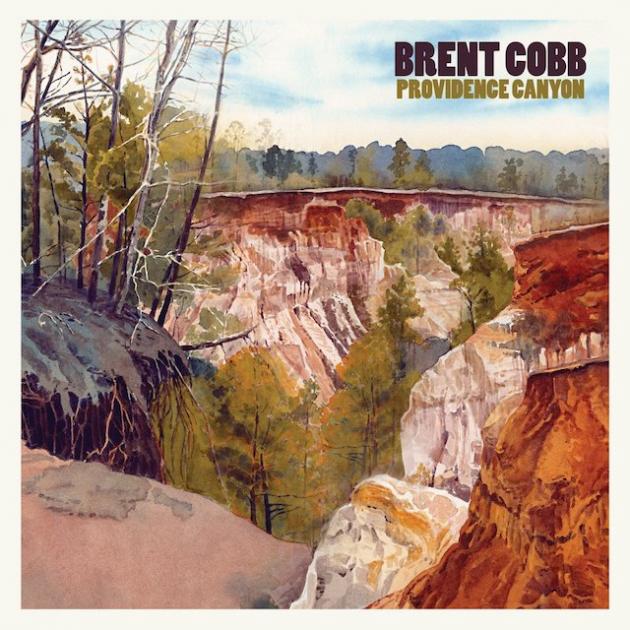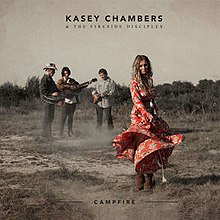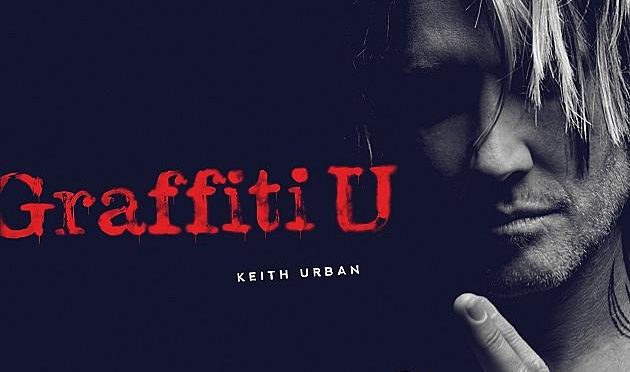Rating: 8/10
As you all know, I refuse to write about something unless it gives me a passion for it. Often, that passion comes because an album is fantastic. Occasionally, it’s because an album is horrendous. The most special time is when it’s unexpected and fresh and new, something that’s truly being underappreciated and deserves more recognition. These instances are when I’m the most thankful for this outlet, when artists like Darci Carlson come along and blow me away. It’s one thing to enjoy music–hell, I absolutely love Brent Cobb’s album from yesterday–but it’s quite another when an artist makes me excited to talk about them and shine a spotlight on their work for people who might not otherwise know about them. I’ve actually attempted to talk about Darci several times, but every time I sit down to write, I end up listening to her new self-titled album again instead.
This is most certainly not going to be for everyone like it is for me. As Carlson says on her excellent cover of “Outlaw Women,” she definitely doesn’t give a damn about society. She’s going to take hits in high heels on “Daddy’s Girl,” flirt with men for a free tank of gas because she’s “far too pretty to be left alone in this dirty old city” on “Wild Reckless and Crazy,” and run from a man while high on cocaine in the opener, “Rat City Bound.” You’d almost think “Outlaw women” was her own song since it fits in here so effortlessly. The point is, this is not the album to show to your grandma, or your priest, or anyone who might be appalled by such scandalous behavior.
It’s all normal stuff you see in outlaw country, sometimes done by certain artists to the point that it becomes a parody of itself, but it’s fair to say that it holds more power and originality when delivered in the female perspective, similar to Robyn Ludwick’s latest album. Unlike Ludwick’s songs, however, you get the distinct feeling listening to Darci Carlson that these accounts are personal, or at least altered versions of things that really happened to her. Robyn Ludwick is a storyteller, interpreting the hard side of life and humanizing characters who don’t get a fair shake in society or in country music; Darci Carlson comes off more as a participant in that side of life, simply giving voice to her own stories and experiences.
She’s got absolutely the perfect voice for that endeavor as well, a voice unlike anything I’ve heard in current country music except for possibly a very slight resemblance in certain songs to the aforementioned Ludwick. She’s more like Melissa Etheridge meets Bonnie Tyler, with a rasp that fits these stories excellently. It’s perfect because these are lyrics reminiscent more of classic rock than country, only delivered with twang and backed by country instruments. The production is gritty as well. There’s a rock edge to most of these tracks, and the piano in the spirited “Don’t Call me Baby” sounds like it came straight out of some saloon in Lonesome Dove. It’s all very worn and familiar, dated but in a charming, comforting way. She says in “daddy’s Girl” that she’s “all thrills, no frills,” and that’s a good description for the raw feel of the production. It’s not smooth or polished, and that’s another thing not everyone will enjoy about it. It’s also something which will make it even more appealing to those who will like this record.
As for the themes, it’s actually pretty well-balanced. The hard living echoes throughout, but it’s not a one-sided portrait of being an “outlaw” for the sake of it. “Wild Reckless and Crazy” is first presented as a triumphant tale, but then there’s a stripped-down version which completely turns the song on its head–instead of an anthem for questionable behavior, it becomes a self-aware and reflective commentary on her state of affairs. Each is probably correct, depending on the present moment, two sides of a complicated coin. “Daddy’s Girl” sees Darci declaring that being alone “sounds way more fun than being stuck at home with a man” and that, although she does believe in love, “I’ll be damned if I can find one I can’t get sick of.” Yet she’s got a sentimental side like all of us, even the most jaded, and it comes out in songs like “To the Moon and Back” and “Indian summer.” They’re not sappy by any means; the former features the line “even strung out on dope, you’re still heaven-sent,” but they represent another side to Carlson and show that she’s not one-dimensional, just doing the outlaw thing to brag or simply for the sake of being an outlaw.
I’m enjoying the hell out of this. It’s cool and different and most importantly, it’s not getting enough love. As I say, it’s not going to be everyone’s thing, both because of the material and because of the production style, but this record is strongly recommended if you like your country dark and gritty, and especially if you don’t give a damn about society.



